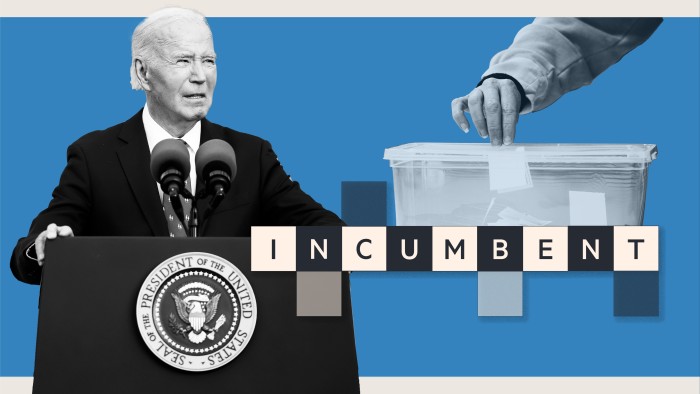Unlock Editor’s Digest for free
FT editor Roula Halaf picks her favorite stories in this weekly newsletter.
(adjective and noun) the current holder of an office or position
For more than a century, one of the most fundamental concepts in political science has been that of the incumbent advantage. You could call it electoral gravity, a force that pulls everything toward the person or party running the show. The reasons are many. Being in power offers the benefits of strong name recognition, established fundraising networks, media relations and track record.
But it’s no longer clear that’s the case, and many of the very things that fueled the ballot may now cause backlash. In 2024, when more than half of the world’s population has the right to vote in an election, incumbents have moved from the US to the UK and beyond.
When the long-term trend across the democratic world was one of strong economic growth and progress more broadly defined, having a record in power was a good thing. In the absence of a nasty economic shock or a terrible mistake, parties could run successful campaigns focusing on the tangible improvements they had brought about during their tenure.
With stagnation now the norm, this has been reversed. “Vote for us if you want four more years of stable living standards and other things getting worse” is not an obvious vote winner.
Similarly, in an increasingly fragmented media landscape where first-time politicians can speak directly to voters, being well-known to mainstream news organizations is no longer a big boost. If Elon Musk has his way, even the incumbent’s fundraising advantage may soon be a thing of the past.
If the trend continues, it bodes ill for reasonable centrists, for measured rhetoric, and for incremental policy successes. We seem to be in a new era where all candidates, incumbents and outsiders alike, have a strong incentive to run as populists, promising quick wins and sweeping reforms.
john.burn-murdoch@ft.com


